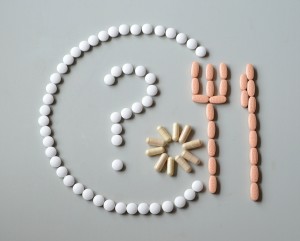
There are two types of medications that you can use to help manage bedwetting. There are over-the-counter medications and ones that are prescribed by a doctor. There’s also a large variety of over-the-counter medications and supplements that are available online to help control bedwetting. Although, a good number of these supplements receive negative or mixed reviews on sites like Amazon.com. The medications prescribed by doctors see the most success and are highly effective. Below is a list of bedwetting medications and supplements that are commonly used to manage bedwetting.
Bedwetting Medications and Supplements
The most common doctor prescribed bedwetting medication is Desmopressin or DDAVP. This medication is a type of synthetic hormone that alters the chemistry of your body and reduces the amount of liquid you can produce. It also controls and reduces your thirst. The obvious reason to use this medication for bedwetting is simply to reduce the amount of urine a child can produce before bedtime. There are only a few reasons why these bedwetting medications can’t be prescribed. This is due to either an unhealthy reaction to other drugs or to allergies. Otherwise, this drug is completely safe. Schedule a visit with your doctor and ask if this medication would be right for you or your child.
There is also a variety of supplements that attempt to accomplish the same goal. Some people want to use a more natural route with herbs and supplements. These often come in the form of pills that contain plant and vitamin extracts. However, many of these supplements receive mixed reviews and are a lot less successful than the above-mentioned hormone treatment. The thought process behind these bedwetting medications is to strengthen the bodily components involved in urination, through vitamins. These methods often see slight reductions, but should also be accompanied with bedwetting products like sheets, diapers, and alarms.
The last and least successful type of bedwetting medications are general children’s sleeping pills. A lot of these are marketed towards bedwetting, but there is no evidence that suggest healthier sleep will reduce bedwetting. In fact, your child should be more alert and have the ability to go to the bathroom before they have an accident. These products are simply counterintuitive and should be avoided.
Recommendations for Bedwetting Medications
If you are not opposed to hormonal treatment, a doctor prescribed bedwetting medication. Medications such as Desmopressin, is the way to go. Remember, no matter which treatment you choose, there is never a 100% guarantee of no bedwetting incidents. You should also take the necessary precautions to inform and educate yourself or your child on prevention and clean up strategies.
